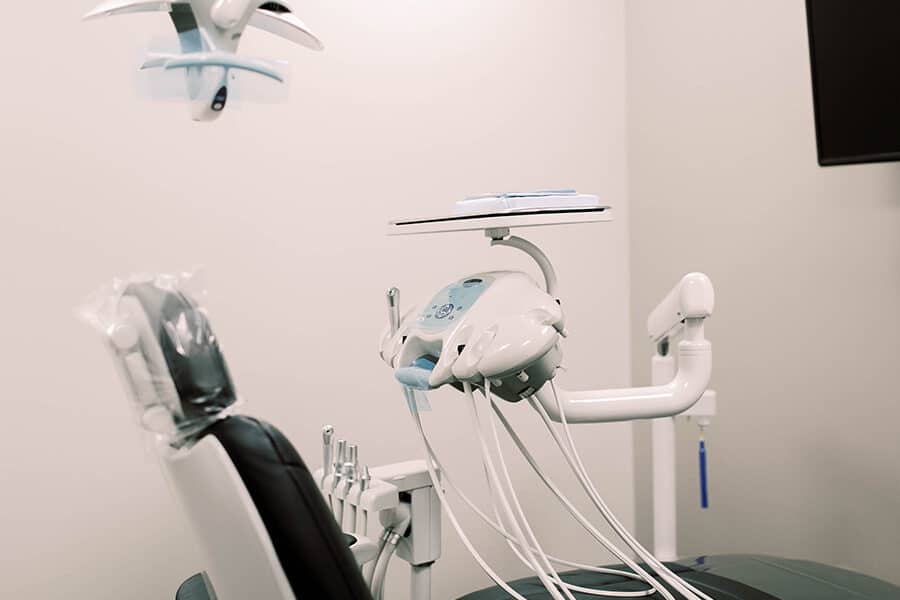There are a few types of anesthesia that can be used during an oral surgery procedure. We understand that the idea of surgery and anesthesia can be uncomfortable and intimidating for some people to think about ahead of any procedures.
Dental anesthesia is common and safe, but before it’s administered, the dentist should know a patient’s complete medical history to avoid any possible complications. Side effects are rare and vary depending on the type of anesthesia that is administered.
Types of Anesthesia:
General Anesthesia: Puts patients in a sleep-like state with a combination of medications that prevent the patient from feeling pain and experiencing the surgery. These medications essentially block the brain from receiving pain signals while you’re in surgery. While you are under anesthesia, your doctor will monitor your vital functions and breathing to ensure that you are safe through the procedure.
When receiving general anesthesia, you will need a ride home after your appointment.
Intravenous (IV) Sedation: Administered by taking medication through a vein or orally. IV sedation works very quickly and even though you are conscious through the procedure and can respond to your doctor’s signals, your memory of the surgery will be vague if any. This form of sedation doesn’t offer pain relief, so it is usually used in combination with local anesthesia or other pain medications.
When receiving this form of medication, you will need a ride home after your appointment.
Local Anesthesia: This is the numbing of the area where the procedure is to be performed. Commonly referred to as “novocaine,” there are a number of updated anesthetics that can be used in this type of numbing. This type of anesthesia temporarily blocks pain in the local area and usually wears off within a couple of hours.
You can usually drive yourself after receiving local anesthesia, but it’s best to discuss this with your doctor.
Nitrous Oxide: More commonly referred to as “laughing gas,” nitrous oxide might be used to relax you or make you less nervous about your treatment. The effects of nitrous oxide wear off relatively fast and can be used with oral medication.”
You may or may not be able to drive yourself home from your appointment if nitrous oxide is used, so please discuss this with your doctor.
It is important for all patients to wait for the effects of anesthesia to wear off before leaving a dental appointment. Especially in cases where general anesthesia is administered, patients are advised not to drive themselves home.
Benefits of Anesthesia:
Dental anesthesia allows people to gain a sense of comfort about complex or lengthy procedures and may enable some patients to undergo elective procedures they have previously feared. Several methods help to control pain, lessen discomfort and assist in relaxation. Depending on the type of anesthesia used, discomfort during the dental procedure can be significantly reduced or completely eliminated.
Your dentist will determine which type of anesthesia is best for you based on the type and seriousness of the procedure being performed and on the medical condition and personal preferences of the individual patient.
If you’ve been putting off a necessary procedure to improve your oral health over the fear of pain or the procedure itself, talk with one of our doctors during your consultation about the methods used to lessen your pain or nervousness. Our doctors will be able to talk to you about the methods available for your procedure and be assured that you’ll be provided with a safe and comfortable oral surgery experience.
